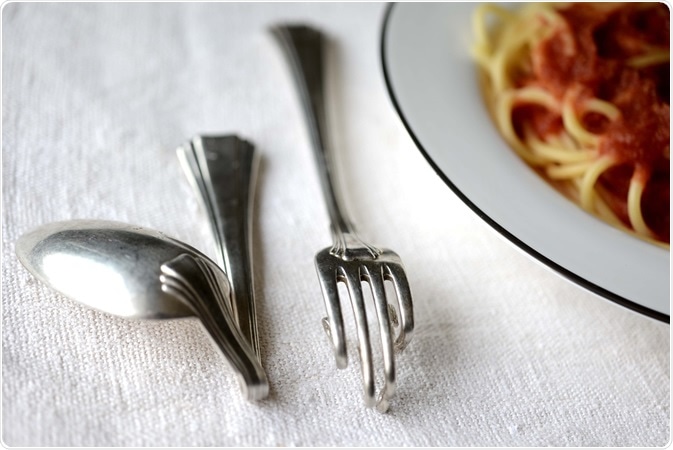Also known as weight loss surgery, bariatric surgery is a procedure carried out to help people who are severely or morbidly obese to lose weight.

Image Credit: Ursula Ferrara / Shutterstock
Types of bariatric surgery
There are three types of bariatric surgery that may be performed:
- Gastric band procedure – During this procedure, the size of the stomach is reduced using a band that is placed around the stomach. This reduces the amount of food a person needs to eat in order to feel full.
- Gastric bypass – This procedure involves dividing the stomach into a smaller upper section and a larger lower section. The smaller section is then connected to the duodenum, which is the beginning portion of the small intestine. Food only passes into the small stomach and this part of the small intestine, thereby allowing it to bypass the remaining stomach and bowel. This reduces the number of calories absorbed when food is passed through the digestive system, while also decreasing the amount of food a person needs to eat in order to feel full.
- Sleeve gastrectomy – A sleeve gastrectomy procedure will involve the removal of a part of the stomach to reduce its size and limit the amount of food intake required for a person to feel full.
Sensory changes following surgery
Change in the taste, smell, or tolerance of food following bariatric surgery is a common phenomenon. In fact, one study has found that as many as 97% of patients experience at least one such change following these surgeries.
Why Do Foods Taste Different After Bariatric Surgery? - The Nebraska Medical Center
Fortunately, the sensory changes experienced by individuals post-bariatric surgery often benefit patients, with research showing that they help people to lose more weight as compared to those who do not experience these changes.
According to a study conducted by researchers from the University Hospitals of Leicester, which included 103 patients who underwent gastric bypass, 73% reported changes in the taste of food and almost 50% reported changes in smell. The most commonly reported taste changes were heightened sensitivity to sweet food, sour food, and fast food.
In this same study, some patients also developed an oversensitivity to sweetness in protein shakes, which can be a problem should patients need to follow a liquid-only diet after their operation. If this happens, a patient should talk to their doctor to ensure their dietary requirements are being met.
Eating behaviors may also change following bariatric surgery. Patients may be less likely to find that emotional eating is a problem, thereby reducing the impact that eating cues might have on an individual.
Evidence also suggests that the mood-altering effect of sweet foods may be reduced, with patients less likely to experience a “sugar high” after a bariatric procedure. The tendency to eat purely as a matter of habit may also fade.
Causes
The exact cause of these sensory changes following bariatric surgery is not yet clear; however, many researchers suspect that fluctuating gut hormones and their physiological effects on the nervous system may play a role.
The central nervous system (CNS) relays hunger, craving, and satiety messages between the brain and gastrointestinal tract. The nerves that carry these messages are affected when a part of the stomach is removed, which impacts a person’s sense of taste, smell, and satiety.
Ghrelin is a hormone that plays an important role in hunger. A reduced calorie intake and weight loss leads to increased ghrelin production, which makes people feel hungry. In contrast, weight loss as a result of bariatric surgery leads to decreased ghrelin production, which therefore reduces hunger and food intake following the procedure.
Another important hormone that is involved in satiety is leptin. The primary function of this hormone is to relay messages between the gut and brain about how full a person is and determine whether calories are burned or stored as fat.
Losing weight is believed to increase a person’s sensitivity to these messages, resulting in a person feeling full more easily after eating only small amounts of food.
References
Further Reading
Last Updated: Apr 5, 2021